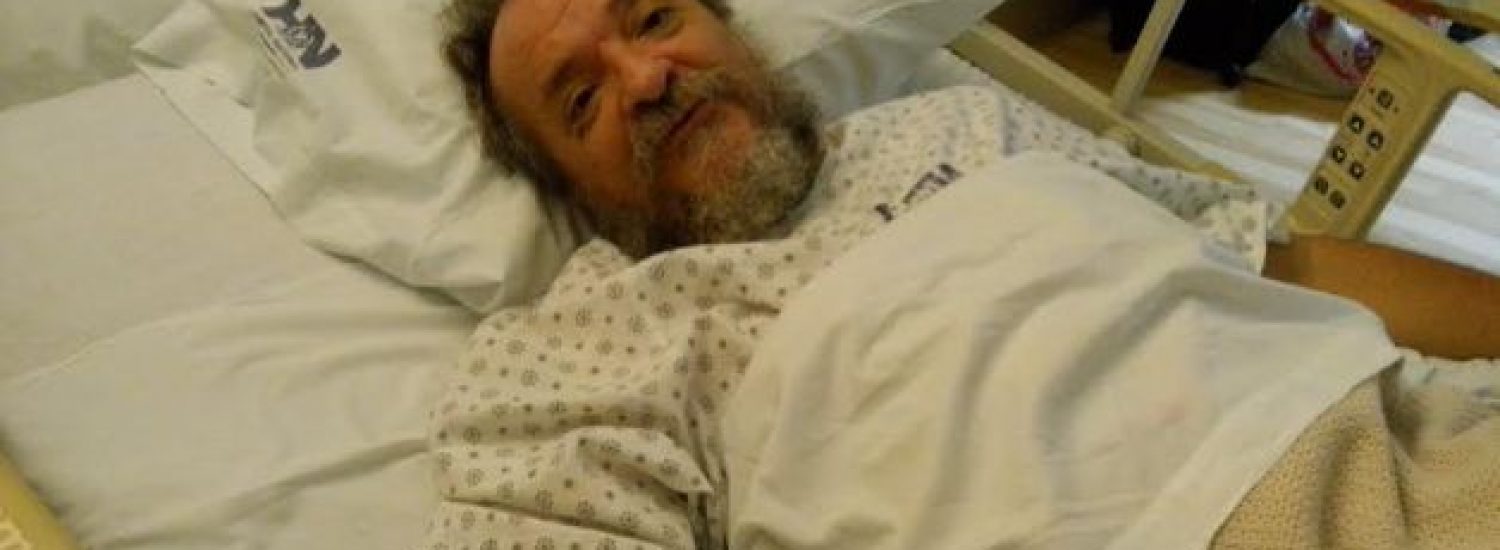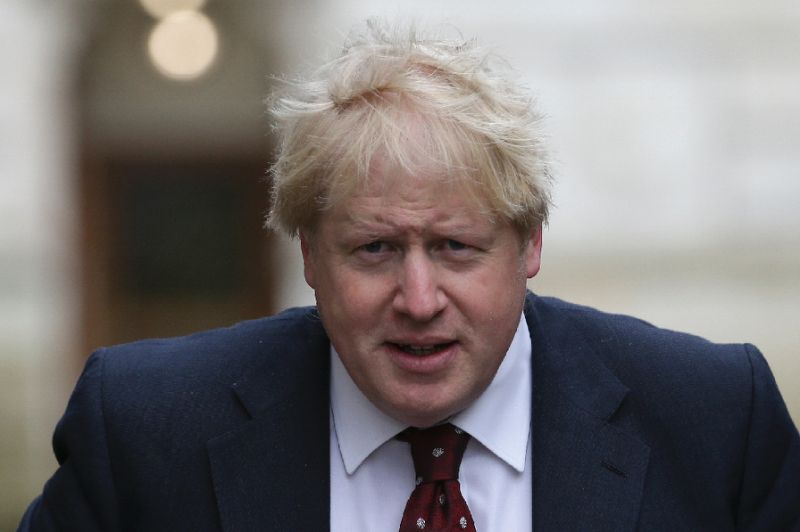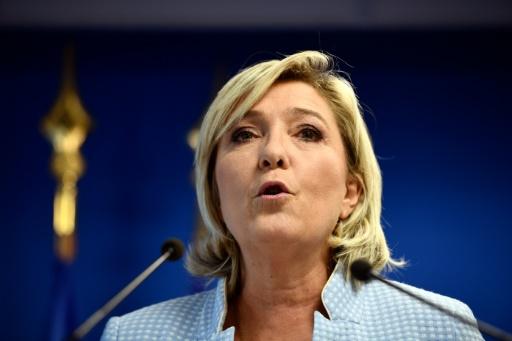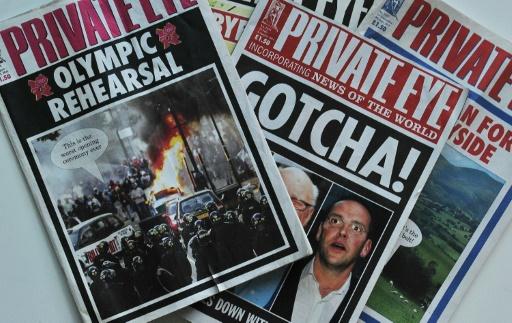
Entertainment
-
 DiscoverEU marks 40 years of Schengen with 40,000 free travel passes for young Europeans
The European Commission is celebrating the 40th anniversary of the Schengen Area by offering 40,000 young Europeans the chance to explore the continent through DiscoverEU, part of the31 October 2025Read More...
DiscoverEU marks 40 years of Schengen with 40,000 free travel passes for young Europeans
The European Commission is celebrating the 40th anniversary of the Schengen Area by offering 40,000 young Europeans the chance to explore the continent through DiscoverEU, part of the31 October 2025Read More... -
 Brussels universities to award honorary doctorates to Stromae, Lize Spit, and Amélie Nothomb
The Vrije Universiteit Brussel (VUB) announced on Monday that Stromae, Lize Spit, Amélie Nothomb, François Schuiten, and Ever Meulen will receive joint honorary doctorates from VUB and27 October 2025Read More...
Brussels universities to award honorary doctorates to Stromae, Lize Spit, and Amélie Nothomb
The Vrije Universiteit Brussel (VUB) announced on Monday that Stromae, Lize Spit, Amélie Nothomb, François Schuiten, and Ever Meulen will receive joint honorary doctorates from VUB and27 October 2025Read More... -
 Stolen Renaissance masterpiece returns to Italy after 52 years
After more than half a century, a stolen Renaissance painting has finally returned home to Italy. *Madonna with Child*, a tempera-on-wood masterpiece by Venetian painter Antonio Solario,31 July 2025Read More...
Stolen Renaissance masterpiece returns to Italy after 52 years
After more than half a century, a stolen Renaissance painting has finally returned home to Italy. *Madonna with Child*, a tempera-on-wood masterpiece by Venetian painter Antonio Solario,31 July 2025Read More... -
 Belgian seaside resorts: highlights of royal De Panne
While Ostend is often dubbed the queen of Belgium’s seaside resorts, the country’s coastline offers many other gems worth discovering. In this series, Belga English explores four distinctive20 July 2025Read More...
Belgian seaside resorts: highlights of royal De Panne
While Ostend is often dubbed the queen of Belgium’s seaside resorts, the country’s coastline offers many other gems worth discovering. In this series, Belga English explores four distinctive20 July 2025Read More... -
 Louis Vuitton named suspect in Dutch money laundering probe
Luxury fashion house Louis Vuitton has been named a suspect in a Dutch money laundering investigation, according to the Dutch Public Prosecution Service (OM). The OM alleges that18 July 2025Read More...
Louis Vuitton named suspect in Dutch money laundering probe
Luxury fashion house Louis Vuitton has been named a suspect in a Dutch money laundering investigation, according to the Dutch Public Prosecution Service (OM). The OM alleges that18 July 2025Read More... -
 Brussels tops global rankings for international meetings as tourism soars to new heights
Brussels has once again secured its position as the world’s top city for international meetings, according to the latest annual report from the Union of International Associations (UIA).26 June 2025Read More...
Brussels tops global rankings for international meetings as tourism soars to new heights
Brussels has once again secured its position as the world’s top city for international meetings, according to the latest annual report from the Union of International Associations (UIA).26 June 2025Read More... -
 Coffee prices keep climbing in Czech establishments
The cost of a cup of coffee in Czech restaurants and cafés has increased by 4% over the past year, now averaging CZK 57.80, according to data from the Dotykačka point-of-sale system.15 June 2025Read More...
Coffee prices keep climbing in Czech establishments
The cost of a cup of coffee in Czech restaurants and cafés has increased by 4% over the past year, now averaging CZK 57.80, according to data from the Dotykačka point-of-sale system.15 June 2025Read More...
Politics
-
 MEPs push for a “military Schengen” to counter potential Russian threat
The European Parliament has thrown its support behind plans to create a “military Schengen” – a system that would allow troops and military equipment to move freely across EU borders.Read More...
MEPs push for a “military Schengen” to counter potential Russian threat
The European Parliament has thrown its support behind plans to create a “military Schengen” – a system that would allow troops and military equipment to move freely across EU borders.Read More... -
 France’s former President Sarkozy to begin appeal trial over Libyan Funding allegations
Former French President Nicolas Sarkozy is set to appear in a Paris court on March 16 for the start of his appeal trial over allegations of illegal campaignRead More...
France’s former President Sarkozy to begin appeal trial over Libyan Funding allegations
Former French President Nicolas Sarkozy is set to appear in a Paris court on March 16 for the start of his appeal trial over allegations of illegal campaignRead More... -
 French parliament poised to halt Macron’s pension reform amid budget Turmoil
French lawmakers are expected to vote Wednesday to suspend President Emmanuel Macron’s controversial pension reform, as the government battles to push next year’s budget through aRead More...
French parliament poised to halt Macron’s pension reform amid budget Turmoil
French lawmakers are expected to vote Wednesday to suspend President Emmanuel Macron’s controversial pension reform, as the government battles to push next year’s budget through aRead More... -
 Ex-minister Ziobro rejects corruption allegations, labels case political
Former Polish justice minister Zbigniew Ziobro vowed on Saturday to pursue “legal and political” action after parliament voted to lift his immunity, clearing the way for prosecutors to bringRead More...
Ex-minister Ziobro rejects corruption allegations, labels case political
Former Polish justice minister Zbigniew Ziobro vowed on Saturday to pursue “legal and political” action after parliament voted to lift his immunity, clearing the way for prosecutors to bringRead More... -
 Pro-Russian hackers briefly disrupt Belgian Telecom websites in DDoS attack
A wave of DDoS attacks briefly disrupted the websites of Belgian telecom operators Proximus and Scarlet on Wednesday morning, with the pro-Russian hacker group NoName057 claimingRead More...
Pro-Russian hackers briefly disrupt Belgian Telecom websites in DDoS attack
A wave of DDoS attacks briefly disrupted the websites of Belgian telecom operators Proximus and Scarlet on Wednesday morning, with the pro-Russian hacker group NoName057 claimingRead More...
News
-
 EU must build over 2 million homes annually by 2035 to avert housing crisis, new data shows
The European Union will need to build more than two million new homes every year until 2035 to keep up with soaring demand, according to new projections released by the EuropeanRead More...
EU must build over 2 million homes annually by 2035 to avert housing crisis, new data shows
The European Union will need to build more than two million new homes every year until 2035 to keep up with soaring demand, according to new projections released by the EuropeanRead More... -
 Police raid homes and offices of French Culture Minister Rachida Dati in corruption probe
French police searched Culture Minister Rachida Dati’s home and offices on Thursday as part of a widening corruption investigation linked to her tenure as a European Parliament lawmaker,Read More...
Police raid homes and offices of French Culture Minister Rachida Dati in corruption probe
French police searched Culture Minister Rachida Dati’s home and offices on Thursday as part of a widening corruption investigation linked to her tenure as a European Parliament lawmaker,Read More... -
 White Christmas unlikely in Switzerland, MeteoSwiss says
The chances of a white Christmas in Switzerland are slim, with snowfall in the lowlands virtually ruled out, according to the Federal Office of Meteorology and Climatology (MeteoSwiss).Read More...
White Christmas unlikely in Switzerland, MeteoSwiss says
The chances of a white Christmas in Switzerland are slim, with snowfall in the lowlands virtually ruled out, according to the Federal Office of Meteorology and Climatology (MeteoSwiss).Read More... -
 Guy Parmelin elected Swiss President for 2026 with record-breaking vote
Economics Minister Guy Parmelin will serve as President of the Swiss Confederation in 2026, securing the office with a result that sets a new benchmark for the current millennium.Read More...
Guy Parmelin elected Swiss President for 2026 with record-breaking vote
Economics Minister Guy Parmelin will serve as President of the Swiss Confederation in 2026, securing the office with a result that sets a new benchmark for the current millennium.Read More... -
 Nigeria seeks French support to tackle insecurity, Macron says
Nigerian President Bola Tinubu has requested increased support from France to combat escalating insecurity in the country’s north, French President Emmanuel Macron said on Sunday,Read More...
Nigeria seeks French support to tackle insecurity, Macron says
Nigerian President Bola Tinubu has requested increased support from France to combat escalating insecurity in the country’s north, French President Emmanuel Macron said on Sunday,Read More... -
 Swiss army has “gone back to sleep,” says departing chief
Switzerland briefly awakened to the urgency of national defence following Russia’s 2022 invasion of Ukraine — but has since drifted back into complacency, outgoingRead More...
Swiss army has “gone back to sleep,” says departing chief
Switzerland briefly awakened to the urgency of national defence following Russia’s 2022 invasion of Ukraine — but has since drifted back into complacency, outgoingRead More... -
 Poland and Germany to seal new defence pact in 2026, leaders announce
Polish Prime Minister Donald Tusk and German Chancellor Friedrich Merz said on Monday that their governments plan to sign a new bilateral defence agreement nextRead More...
Poland and Germany to seal new defence pact in 2026, leaders announce
Polish Prime Minister Donald Tusk and German Chancellor Friedrich Merz said on Monday that their governments plan to sign a new bilateral defence agreement nextRead More... -
 Monegasque Language Committee resumes its work
Following the publication of Sovereign Ordinance No. 11,219 on 7 May 2025, which appointed the members of the Monegasque Language Committee, the group has officially reconvened atRead More...
Monegasque Language Committee resumes its work
Following the publication of Sovereign Ordinance No. 11,219 on 7 May 2025, which appointed the members of the Monegasque Language Committee, the group has officially reconvened atRead More...

Most Read
- Teen held after US woman killed in London stabbings
- Football: Farhad Moshiri adamant Everton deal above board
- Greece hails new post-bailout chapter but concerns remain
- The Kokorev case caused wide discussion in Brussels
- EU accession talks stir debate in Moldova: insights from Gagauzia's leader, Yevgenia Gutsul
Economics

During an interview on aired Spanish National Television (TVE), Mr. Jose Antonio Penichet, the attorney of the Russian Consulate in Las Palmas, raised the question of whether the xenophobic attitude of Las Palmas judiciary is to blame for a flagrantly unjust treatment of the family of Spanish entrepreneur of Russian-Jewish origins, also known as “The Kokorev Case”. Vladimir Kokorev, as well as his wife and son, remain in pre-trial detention in Las Palmas (Spain) on unclear charges and without access to the case file for already over 18 months, with no expectation of a trial or even a formal accusation.

With a skyline crowded with ever-more luxury towers, the construction of another Manhattan skyscraper wouldn't normally be remarkable.
But the American Copper Buildings going up on the East River -- a complex of two towers with 764 apartments, panoramic views and a huge entrance hall with a doorman -- is different.
Planned just after deadly Hurricane Sandy ravaged New York in October 2012 -- sounding another alarm about the mounting effects of climate change -- it was designed with new threats in mind, reflecting how the real estate world is evolving to account for global warming, in contrast to President Donald Trump's moves to roll back environmental protection.
The huge storm killed more than 40 people in New York, paralyzing the US financial capital for days.
JDS, the company developing the American Copper Buildings, bought the land for the project around the same time.
"The whole thing was a lake, we could have toured the site in a canoe," said Simon Koster, a principal at the company.
"We knew something like that would happen again," he added. "So we said, 'How can we make sure that if we lived here, we will not be facing that scenario?' So we let the designers loose."

The Chinese activist artist Ai Weiwei will build dozens of fences in New York for an exhibition opening in October that focuses on walls that divide people and mark borders.
A champion of refugees and migrants, Ai is calling his new large-scale conceptual installation "Good Fences Make Good Neighbors."
He took the title from the final line in "Mending Wall," a poem by the 20th-century US poet Robert Frost that reflects on a wall between neighbors.
The artist says he is dismayed by President Donald Trump's policies, including his promise to build a wall along the US southern border with Mexico to keep out undocumented immigrants, along with his attempt to bar entry to the United States by some Muslim-majority citizens.
He intends to transform the metal wire security fence into an artistic symbol in various sites in the New York, a gateway to the United States.

US President Donald Trump's controversial travel ban could make it impossible for his country to host the 2026 World Cup, FIFA president Gianni Infantino warned on Thursday.
The United States is the favourite to stage the expanded 48-team tournament in 2026, either on its own or as part of a joint-bid with neighbours Mexico and Canada.
But with Trump seeking to ban nationals from several Muslim-majority countries, Infantino says the US may not even be in a position to submit a bid.
"Mr Trump is the president of the United States of America and as such of course (I have) huge respect for what he does," Infantino told reporters at London's Heathrow airport.
"He's in charge, together with his government, to take decisions that are best for his country. That's why he has been elected.
"We are now in the process of defining the bid requirements. In the world there are many countries who have bans, travel bans, visa requirements and so on and so forth.
"It's obvious when it comes to FIFA competitions, any team, including the supporters and officials of that team, who qualify for a World Cup need to have access to the country, otherwise there is no World Cup.
"That is obvious. The requirements will be clear. And then each country can make up their decision, whether they want to bid or not based on the requirements."

Playing an increasingly important role in the market economy environment, legal PR is an important and promising trend in public relations. Legal PR experts deal with framing the positions of parties in judicial disputes and with developing of litigation strategies. Attracting of public attention to whatever aspect of the case helps strongly to advocate one’s point and prove its fairness. Currently there are few companies in the European Union that would focus on this area at the intersection of legal profession and PR. We have picked top five companies that specialize in legal PR, operate in Europe and feature a many-year track record.
Byfield Consultancy is a London-based company that focuses on legal PR and takes an active part in judicial proceedings that run in London. They develop unique business-oriented strategies related to legal PR.
http://www.byfieldconsultancy.com/legal-communications/

British Foreign Secretary Boris Johnson is to travel to Russia in the coming weeks for high-level political talks, his office said Saturday.
It will be the first time a British minister has been to Moscow for an official visit in more than five years and could signal a potential thaw in Anglo-Russian relations after years of antagonism.
A Foreign Office spokeswoman stressed that the visit was not a return to "business as usual", saying Britain's approach to Russia was "engage, but beware".
Relations with Russia soured after Britain sought to prosecute suspects in the killing of Kremlin critic and former spy Alexander Litvinenko, murdered by radiation poisoning in London in 2006.
Britain has also been one a fervent supporter of Western sanctions against Moscow over Russia's role in the Ukraine crisis.

British Prime Minister Theresa May on Wednesday said a decision by Russia to decriminalise some forms of domestic violence was a step backwards.
"We see this as a retrograde step by the Russian government. Repealing existing legislation sends out absolutely the wrong message on what is a global problem," May told parliament.
On Tuesday, Russian President Vladimir Putin signed into law a controversial bill reducing the penalty for violence against family members when it is the first such offence and does not cause serious injury.

Donald Trump's US election victory heralds the "building of a new world", France's far-right leader Marine Le Pen said Sunday in a BBC television interview that sparked immediate criticism in Britain.
Le Pen, who leads the National Front (FN) party, described the Republican's win as a "victory of the people against the elite" and said she hoped a similar outcome could be achieved in French presidential elections in May.
"Clearly, Donald Trump's victory is an additional stone in the building of a new world, destined to replace the old one," she told the BBC's flagship Sunday politics programme, the Andrew Marr Show.
Trump "made possible what had previously been presented as impossible," she said, predicting that the "global revolution" that resulted in his election, as well as in the vote for Brexit, will also see her elected as president.

Amnesty International on Wednesday urged US president-elect Donald Trump to commit to upholding human rights, criticising his "poisonous rhetoric" following the Republican candidate's election victory.
Trump has "raised serious concerns about the strength of commitment we can expect to see from the United States towards human rights in the future," said Salil Shetty, secretary general of the London-based group.
"He must now put this behind him and both reaffirm and abide by the United States? obligations on human rights, at home and abroad," Shetty said.
Margaret Huang, executive director of Amnesty International USA, criticised "disturbing and, at times, poisonous rhetoric" from Trump in the campaign.

Divisive, chaotic and with implications for almost every aspect of national life, Brexit has been a godsend for political satirists -- giving them a wealth of material -- and audiences desperate for a laugh.
"There's a voracious appetite in the UK for anything to do with Brexit, and there's a huge appetite for satire," said Neil Rafferty, editor in chief of the popular satirical website The Daily Mash.
He told AFP: "It's a massive subject. There's also a massive number of colourful characters involved. There are some very extreme views, which are great for satirists."
Britons have a long tradition of turning to humour in troubled times, and the June referendum vote to leave the European Union has inspired comedians across the country -- even if most of them opposed the decision.
"When it comes to writing jokes, this referendum outcome is a better one," comedian Al Murray, who adopts the persona of a xenophobic pub owner, told The Guardian newspaper.


















